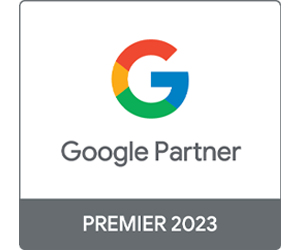
Having a strong set of keywords can help with the success of your PPC campaigns…
Keywords have an important role to play within digital marketing, however, many marketers do not spend the necessary time and effort on optimising them.
If you don’t choose keywords that your customers are likely to search for, as well as ones with a high enough search volume per month or the right intent, you could struggle to get found amongst all the competition online.
However, by optimising keywords for your PPC campaigns, you can drive more traffic to your site, resulting in more conversions and more revenue for your business. Below are some of our expert strategies, tactics and top tips that you can apply to your keyword optimisation processes.
Just like in SEO, keyword research for PPC involves researching, analysing, and selecting several keywords for the purpose of driving traffic to your website. When performing keyword research for PPC, you want to find keywords that will bring the most clicks to your ads, generating more potential sales.
A critical part of keyword optimisation for PPC is remembering to address negative keywords. While you of course want to focus on finding and targeting keywords that will positively affect your ads and campaigns, you should also decide what not to target.
For example, if you’re a furniture and homeware store selling interior furniture pieces, you would want to target keywords such as “indoor furniture” and add keywords like “outdoor furniture” to your negative keyword list. This ensures that the right customers can find you quickly and easily, and stops irrelevant users from landing on your site.
It’s important to know how to optimise keywords for Google. For PPC optimisation, you should action the below points:
It’s important to note that Google suggests having no more than 30 keywords per ad group, and two to three ads per ad group are using the keywords within the ad text.
When creating new campaigns, it is especially important to conduct keyword research. You want your new campaigns to be set up to perform well from the get-go.
When starting out with keyword research, you may be wondering what the best keyword research tool is. There are several tools available, such as Google Keyword Planner, Moz Keyword Explorer, SEMrush, and Ahrefs Keywords Explorer, to name but a few. These tools can help you to find the best keywords for your campaigns that are relevant to your business and its offering.
Once you’ve selected the tools, you can begin the research process. Here are some of the main things you should consider:
Also, as previously mentioned, don’t forget to address negative keywords to weed out unwanted traffic! Negative keyword research is now more important than ever, as Google has started hiding long tail search query results in keyword query reports.
Keyword research is an ongoing part of your PPC management. This is because keyword trends change over time, as do your business offerings.
There are many ways you can optimise your keywords for existing campaigns. Perhaps the most beneficial to your business is to use reporting to establish areas of improvement. For example, reports can highlight important information such as:
Once you have these factors, you can begin to further optimise and improve your PPC campaigns. For further insights into the performance of your PPC campaigns, you can take advantage of our digital marketing reporting dashboard.
We’ve briefly discussed the importance of ad text and landing pages as part of your PPC keyword optimisation process. PPC and SEO go hand in hand, so you should consider using SEO tactics to further optimise your PPC campaigns and keywords.
For example, you can review keywords used within your website copy, optimise blog titles and update meta descriptions to feature these core keywords. You should ensure there is always sufficient copy on a page, and test different landing pages to see which ones perform stronger.
PPC keyword optimisation is often overlooked by marketers. We can work with you to develop an optimised keyword list and continue to optimise these as your campaigns progress. Contact us to find out more about what we can do for you.
Alternatively, you can discover our training courses to update your knowledge on all things PPC.







© 2024 Diginius Ltd. All rights reserved.

Chester Yang is the Microsoft Program Manager at Diginius with a background in economics and quantitative research.
At Diginius, Chester focuses on nurturing partnerships with PPC agencies and integrating marketing and sales solutions.